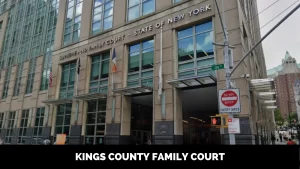How to Get an Emergency Hearing in Family Court
Dealing with a family law issue can often feel urgent, especially when it involves the safety and wellbeing of children. Getting a court date scheduled usually takes time, but in certain situations, you may be able to request an emergency hearing to get before a judge faster. Here’s what you need to know about emergency hearings in family court.
What is an Emergency Hearing?
An emergency hearing, also called an expedited hearing, is a court hearing that is scheduled quickly before a judge due to urgent circumstances. Emergency hearings are a way to get a temporary order in place when there is a risk of irreparable harm if you have to wait the typical amount of time for a standard hearing.
Emergency hearings are usually scheduled within days or weeks, rather than the weeks or months it can take to get a typical court date. They allow you to get in front of a judge quickly to ask for immediate relief.
When Can You Request an Emergency Hearing?
You can request an emergency family court hearing when there is a true emergency that cannot wait for the time it would take to get a regular hearing. Situations where you may be able to request an emergency hearing include:
- Risk of child abduction – If you have evidence the other parent plans to take the child out of state or country illegally.
- Risk of physical or sexual abuse – If the child is in immediate danger of abuse.
- Risk of relocation – If the other parent plans to move with the child without proper notice or court approval.
- Risk of harm – If the child is in danger of immediate physical or emotional harm.
- Removal of child – If the child was removed from your home without proper notice or cause.
- Violation of custody order – If the other parent violated a custody/parenting time order.
- Other emergency risks – Any other urgent circumstance where irreparable harm could occur if you wait for a regular hearing.
The key is being able to show there is an immediate emergency that cannot wait. You will need to provide evidence of the risk of harm if the emergency order is not granted.
How Do You Request an Emergency Hearing?
Each court has its own specific procedures for requesting an emergency hearing, but there are some general steps to follow:
1. File a Motion for an Emergency Hearing
The first step is to prepare and file a Motion for an Emergency Hearing, along with any supporting documentation that proves the emergency circumstances. Make sure your motion clearly states:
- The facts surrounding the emergency situation
- The irreparable harm that could occur if you wait
- The immediate relief you are requesting
Some courts have forms available for an emergency hearing request. Check your court’s website or ask the court clerk.
2. Provide Reasonable Notice
You must provide reasonable notice to the other party of your request for an emergency hearing. Typically, you would have them served with the motion papers through official means, such as by a process server.
However, in true emergency situations, you may be able to give shorter notice, such as calling them or sending an email informing them of the hearing request. Check your court rules.
3. Get a Hearing Date
File your motion with the court clerk and ask about the procedure for scheduling an emergency hearing. Each judge handles their calendar differently. There may be certain days or times emergency hearings are set.
The clerk can advise you of the process and may have you coordinate with the other party for a mutually agreeable time. If no agreement can be reached, the court will determine the date.
4. Serve the Other Party with Notice of Hearing
Once you have a hearing date and time, formally serve the other party with notice of the hearing. This is typically done through mail or personal service of process. Make sure to retain proof of proper notice.
5. Attend the Hearing
On the date of the emergency hearing, be sure to arrive early and be prepared to explain the emergency circumstances and present evidence to the judge. Bring all supporting documentation. Follow all court rules and procedures for emergency hearings.
What Happens at an Emergency Hearing?
The process at an emergency family court hearing may vary slightly by court but generally will proceed as follows:
- The court determines there is an emergency – First, the judge will review the motion and make sure there is adequate cause to move forward urgently. If not, the hearing may be adjourned.
- Parties present evidence – Each party will have the chance to present evidence related to the alleged emergency through testimony, witnesses, and documentation.
- Questioning from judge – The judge will ask questions to understand the circumstances and urgency. Be prepared to explain exactly why the situation cannot wait for a regular hearing.
- Arguments from parties – Each side will make arguments about their position regarding the requested emergency relief. Focus on the irreparable harm that could occur.
- Ruling by judge – The judge will make a ruling on whether the emergency order will be granted. The other party will have to follow the order until the next court date.
- Schedule future hearing – Before adjourning, the court will typically schedule further proceedings to revisit the issues on a normal court calendar.
What Kind of Emergency Relief Can a Court Order?
If the judge determines an emergency order is warranted, they have broad authority to make temporary orders for the protection and wellbeing of the child. Some examples of emergency relief can include:
- Temporarily changing custody, visitation or parenting time
- Restraining a parent from certain actions
- Ordering a child to be returned to the appropriate parent
- Requiring supervision or limitation for parenting time
- Ordering parties to appear in court or mediation
- Any other orders to prevent immediate harm until the issue can be fully heard
The relief granted will depend on the evidence presented and circumstances of the case. Work with an attorney to understand the emergency options available in your situation.
Tips for Requesting a Successful Emergency Hearing
- Act quickly at the first sign of an emergency – Do not wait to file your motion. Timing is critical.
- Follow all court rules – Ensure your request meets all requirements for notice and documentation.
- Obtain clear evidence of harm – Have declarations, police reports, emails, etc. to prove your allegations.
- Stick to relevant facts – Focus your request and arguments only on the emergency itself.
- Remain calm at hearing – Do not let emotions overtake your testimony. Be direct and factual.
- Consult an attorney – Having a family law attorney assist you can make the process smoother.
What If Your Request for an Emergency Hearing is Denied?
If the judge denies your request for an emergency hearing, do not be discouraged. You can still pursue the issues through the standard court process. The following steps can also help:
- Immediately review the basis for the denial. Determine if you need additional evidence.
- Discuss with your attorney to analyze what happened and strategize next steps.
- Request an earlier regular hearing date due to the circumstances.
- Supplement your motion with further evidence of harm that arises.
- Consult the courthouse self-help resources for guidance on filing motions.
- If circumstances deteriorate, file a new emergency motion emphasizing the worsening conditions.
Alternatives to an Emergency Hearing
In some situations, an emergency hearing may not be an option, or your request may get denied. Some alternatives to quickly resolve a dangerous family situation include:
- Report suspected abuse or neglect – Contact CPS and/or the police who can immediately intervene.
- File for a restraining order – Seek a domestic violence restraining order if you or child are in danger.
- Contact local shelters – Call domestic violence or child abuse shelters for help safety planning.
- Engage in dispute resolution – See if temporary agreements can be reached through mediation or lawyers.
- Modify existing orders – File motions to modify current custody orders if circumstances have changed.
- File emergency motions – Seek other emergency relief from the court, if available in your case.
Understanding Court Processes for Family Emergencies
Navigating urgent family issues through the courts can be complex and confusing. By learning emergency hearing procedures in advance, you will be better prepared if an emergency situation arises. Understanding court processes can help you act quickly and effectively to protect your child.
Conclusion
Emergency hearings provide a way to get critical temporary relief when circumstances are urgent and harmful. By following proper procedures and providing evidence of imminent danger that cannot wait for a regular court schedule, you may be able to successfully request an expedited hearing. With an effective emergency hearing request, the judge can make orders to protect the child until the issues can be fully resolved. Knowing when and how to request an emergency hearing can be crucial for keeping a child safe in a family crisis.
FAQs
Q: What should I do if the other parent plans to flee with our child?
A: If there is evidence the other parent plans to abduct or conceal the child, immediately file for an emergency hearing and provide that evidence to the court. You can request emergency orders to prevent the relocation or flight.
Q: How much notice do I have to give the other party of an emergency hearing?
A: You must provide reasonable notice based on the urgency of circumstances, typically 1-3 days. Some courts may allow less notice in extreme emergencies. Check your court rules.
Q: Can I request an emergency hearing by phone?
A: Courts rarely allow emergency hearings by phone. You typically must file a written motion and appear in person. Some courts permit hearings by video in limited cases.
Q: What if I can’t afford an attorney to help with my emergency hearing?
A: Courts have self-help resources and family law facilitators to provide information for those without attorneys. You can still file the motion and request the hearing without an lawyer.
Q: Can an emergency hearing result in a final custody order?
A: No, emergency hearings usually only result in temporary emergency orders. Custody is later determined in a regular hearing. However, the emergency orders remain binding until then.







